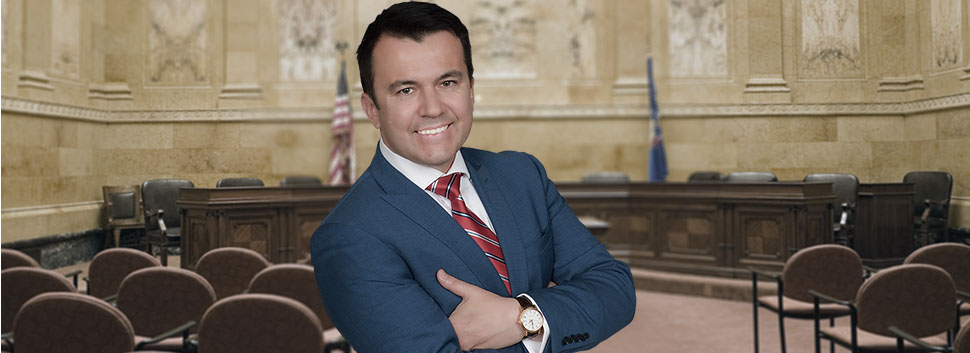Trademark Clearance for Screenwriters: Navigating the Legal Landscape
Trademark Clearance for Screenwriters: Navigating the Legal Landscape
Insights from Lawyer Ernest Goodman
In the intricate world of screenwriting, the importance of trademark clearance is often overlooked. Screenwriters, while weaving narratives, must be vigilant about the potential legal implications of using trademarks within their scripts. This article aims to guide screenwriters through the process of trademark clearance, offering recommendations on what to clear and what words to avoid.
In the film industry, issues of copyright and trademark infringement are not uncommon. From subtle references to overt uses of existing works, films can inadvertently become mired in legal issues. This reality underscores the importance of thorough IP clearance – ensuring every element of your screenplay that is not originally created by you is legally cleared for use.
Financiers and distributors are pivotal in transforming screenplays into cinematic realities. However, their support comes with a caveat: a strict adherence to legal assurances. Without a certificate of clearance, these entities fear the legal repercussions of copyright infringement, which can lead to costly lawsuits and project derailments. Hence, they typically refrain from financing projects lacking this essential document.
Understanding the Importance of Trademark Clearance
A trademark is a sign capable of distinguishing the goods or services of one enterprise from those of other enterprises. In screenwriting, this translates to any branded product, service, or even distinctive catchphrases that may be protected under trademark law. The unauthorized use of trademarks can lead to legal disputes, which not only disrupt the production process but can also lead to costly litigation.
When selecting the title for a media or entertainment productions, a title clearance search should be conducted to determine whether a proposed title is available for use. Without such a clearance search, a selected title may infringe someone’s trademark and you may not know it until you will be sued.
What to Clear
- Brand Names and Logos: If your script includes specific brand names or logos, clearance is necessary, particularly if the brand is a significant element in your story or is shown in a negative light.
- Real Business Names: The use of real business names, especially when central to the plot or portrayed negatively, requires clearance.
- Fictional Brands: Creating fictional brands is usually safer, but ensure they don’t infringe on existing trademarks.
- Catchphrases and Slogans: Trademarked slogans or catchphrases pivotal to your script should be cleared.
- Film/Television Show Titles: Titles of existing films or TV shows, if used, need clearance to avoid trademark infringement.
- A Celebrity’s Identity: Using a celebrity’s name, likeness, or other identifiable aspects may require clearance to avoid issues of right of publicity.
- Third-Party-Affiliated Sounds: Sounds associated with a third party, such as jingles or theme songs, need clearance.
- Third-Party Trademarks for Advertising and Promotional Services: If using a trademark in a context that implies endorsement or sponsorship, clearance is crucial.
Words to Avoid
- Distinctive and Well-Known Brand Names: Avoid using distinctive and well-known brand names unless they are essential to your story and you have obtained permission.
- Generic Terms: While generic terms can be used, be cautious not to use them in a way that might imply a connection to a trademarked product.
- Derogatory or Misleading Use: Avoid using trademarked terms in a derogatory or misleading manner, as this could be construed as defamation or trademark dilution.
Best Practices for Trademark Clearance
- Conduct a Trademark Search: Before finalizing your script, conduct a thorough search to identify any potential trademark issues.
- Consult a Legal Expert: Engaging a legal expert in intellectual property law is advisable to navigate the complexities of trademark clearance.
- Consider Alternatives: If clearance seems challenging or risky, consider altering the script to use generic terms or create fictional brands.
- Document Clearance Efforts: Keep a record of your clearance efforts, including correspondence and permissions. This documentation can be vital in case of legal queries.
- Be Mindful of Context: The context in which a trademark is used in your script is crucial. Even cleared trademarks can lead to legal issues if used inappropriately.
Examples of Infringement
- Using a distinctive soda brand’s logo in a scene without permission, especially if the scene portrays the brand negatively.
- Writing a character closely resembling a real-life celebrity, including their catchphrases or signature styles, without clearance.
- Featuring a real restaurant or store’s name and interior design in a scene that suggests poor service or quality.
Better to Secure Clearance Than Rely on Legal Exceptions
Relying on legal exceptions like fair use can be a risky strategy. It’s often subject to interpretation and doesn’t guarantee protection against legal action. Securing clearance provides a more solid defense and peace of mind.
Better to Fix It Now Than Be Sorry Later
Addressing potential trademark issues during the writing or pre-production phase is far less costly and disruptive than dealing with legal challenges during production or post-production. It’s always wiser to preemptively resolve these issues rather than facing possible legal battles later.
Do It in Advance
Start the clearance process as early as possible. This proactive approach not only minimizes legal risks but also ensures that any necessary changes to the script or production plan can be made without significant disruptions.
Do It in Writing
Ensure that all clearances and permissions are obtained in writing. Verbal agreements can be difficult to enforce and may not provide adequate legal protection. Written agreements create a clear record of permissions and can be invaluable in the event of a dispute.
Importance of Certificate of Clearance
A Certificate of Clearance is a formal document confirming that a particular use of material (like a trademark or copyrighted content) does not infringe upon the rights of others. A Certificate of Clearance is prepared by lawyers. Obtaining this certificate is crucial for several reasons:
- Legal Assurance: It provides legal assurance that the material in your screenplay has been vetted and is clear of potential trademark infringements.
- Proof of Due Diligence: In case of disputes, this certificate serves as proof of due diligence in respecting intellectual property rights.
- Prevents Production Delays: Having this certificate can prevent delays that might arise from legal challenges during production.
- Boosts Confidence of Producers and Investors: It reassures producers and investors that the screenplay is free from legal encumbrances that could impact production or distribution.
Conclusion
Trademark clearance is a critical step for screenwriters to protect their work and avoid legal entanglements. By understanding what needs to be cleared, avoiding certain words, and following best practices, screenwriters can navigate these legal waters with greater confidence and security. Always remember, when in doubt, seek legal advice to ensure that your creative work remains both original and compliant.











